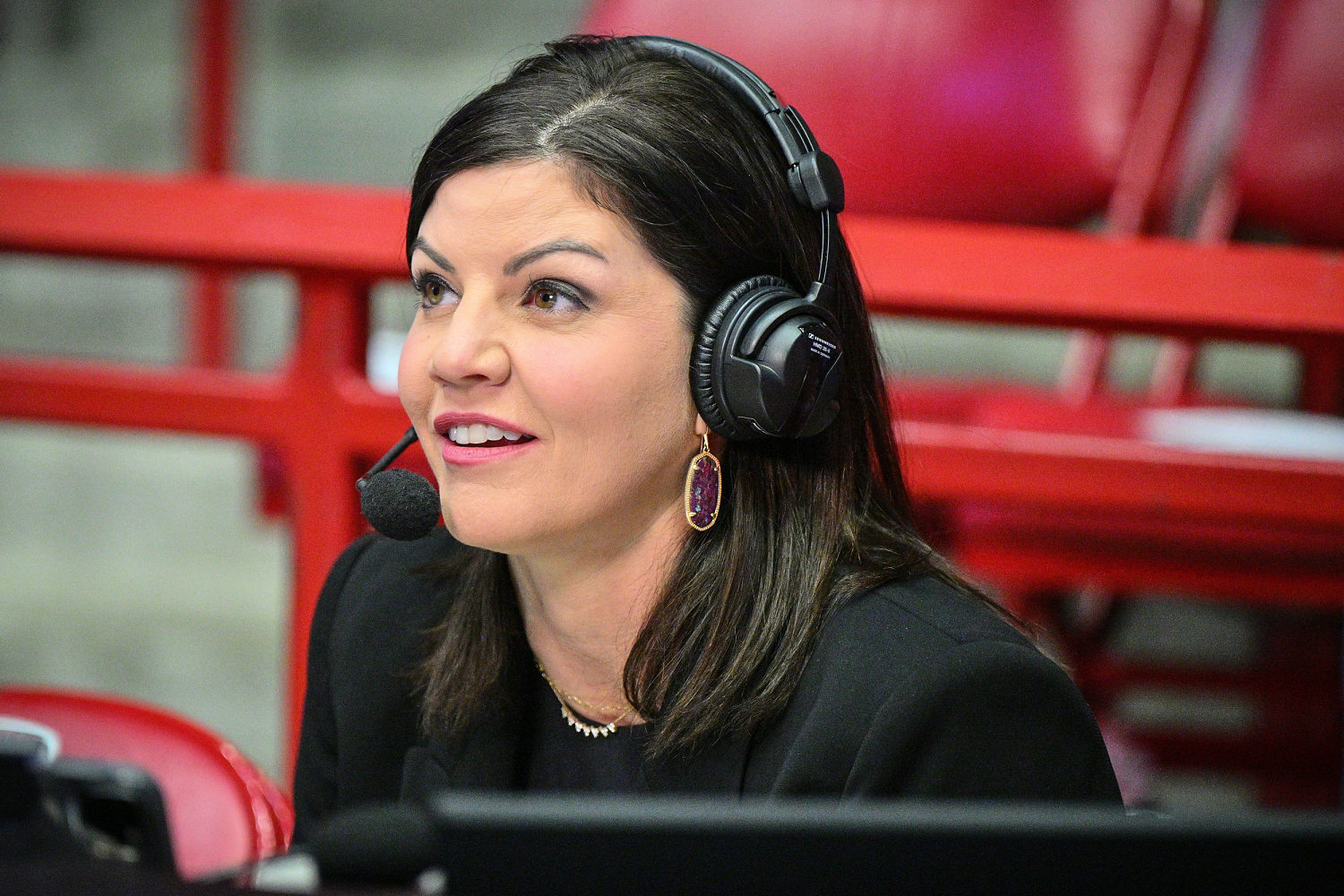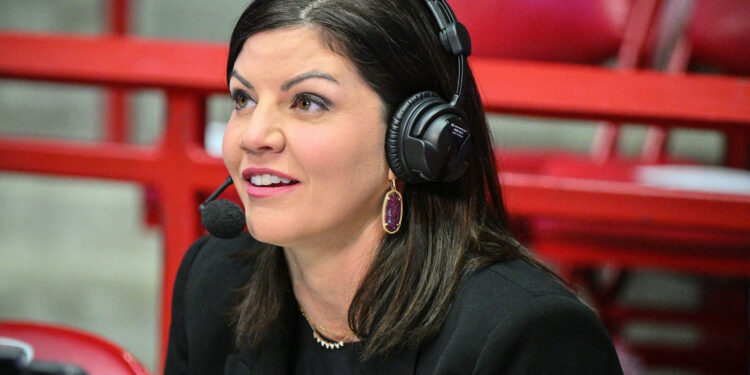
Play-by-play broadcasters seemingly jinxing what happens on a baseball field is a nightly occurrence. Normally, it’s just brushed off with a laugh.
But when Jenny Cavnar did it on May 30, the new voice of the Oakland A’s faced unrelenting criticism online.
Playing off Tampa Bay Rays outfielder Jose Siri’s last name, Cavnar said, “Hey, Siri, it’s not your night,” after he swung and missed a pitch. Moments later, in the bottom of the ninth inning, he crushed a game-tying home run.
“Go back to the kitchen, lady,” one response on social media read.
“I really need to know how she got this job,” said another.
Commenters on Reddit called Cavnar a “colossal failure” with “no baseball sense at all.” More than 600 people signed a petition on Change.org to have her fired from her job.
But she hasn’t been the only female broadcaster hearing it from fans.
Just three days later, on June 2, ESPN announcer Dani Wexelman said a James Madison baseball player’s favorite color is “green trees” after he hit a home run over the wall into a forest area. Wexelman was mocked online for the call and faced requests to “bring back the teleprompter.”
Yet when MLB Network’s Greg Amsinger last month announced a “No Hitter Alert” at the top of a game only for Los Angeles Dodgers pitcher Yoshinobu Yamamoto to immediately give up a home run, readers called the moment “hilarious” and “the funniest.”
The discrepancy between these responses has prompted some experts to call it sexism.
“It’s the idea among some that women don’t belong in men’s sports,” Guy Harrison, an assistant professor of sports media at the University of Tennessee, told NBC News. “There’s no doubt in my mind the response to women commentators is rooted in sexism.”
This resistance comes at a time when women continue to break barriers in baseball, both on the field and in the executive ranks.
In 2020, Kim Ng became the first woman in MLB history to hold the role of general manager after being hired by the Miami Marlins. Two years later, Kelsie Whitmore joined the Staten Island FerryHawks of the Atlantic League, becoming the first woman to sign a contract with an MLB-affiliated league. Then, in February of this year, Cavnar became the first woman in MLB history to serve as a team’s regular play-by-play broadcaster.
In the NBA this year, ESPN’s Doris Burke was a commentator for the Finals between the Boston Celtics and the Dallas Mavericks. It marked the first time a woman served as a game analyst on television for a championship final in one of the four major professional U.S. sports leagues.
Yet despite progress in pockets of the industry, data shows that women don’t often get the same respect as men for doing the same job.
A study published in 2022 by Journalism & Mass Communication Quarterly found that audiences often experience a social identity crisis with female announcers calling men’s sports. It’s rooted in the perception that they’re less competent and less informed than their male counterparts.
“Sports broadcasting has been wholly mired by either half-hearted acceptance or outright rejection of female journalists and announcers in what often constitutes a masculine form of overt gender bias,” the report read. “As audiences grow slightly more accepting, sports broadcasts paradoxically present women journalists as the other in relation to their male counterpart.”
Studies show women make up more than 40% of baseball fans and largely influence the bottom lines of many teams. Cheryl Cooky, a professor of women’s, gender and sexuality studies at Purdue University who studies the representation of women’s sports in the media, believes the contrast represents the push and pull of progress present in almost any industry.
“There is a way that knowledge about sports is gendered masculine and there is a way that it’s policed,” Cooky said. “There is this subset of sports fans that are really invested in maintaining sports for, by and about men.”
But as women continue to break through in male-dominated sports, Cooky sees a possible tipping point coming.
“There is this potential that we might be at the cusp of meaningful social change,” she said. “The danger for me is … the high wears off and we go back to standard operation.”
Cavnar, for her part, chooses to tune out the noise. The 2021 Colorado Sportscaster of the Year and five-time Emmy winner knows she belongs in the big leagues.
“I can only control what is in front of me, and the focus has always been about the work and being true to myself,” Cavnar, who calls the A’s for NBC Sports California, said. “I trust the advice and feedback of the people that have helped me get to this point and those I admire in the business, and that is not something I would find in reading online comments.”







